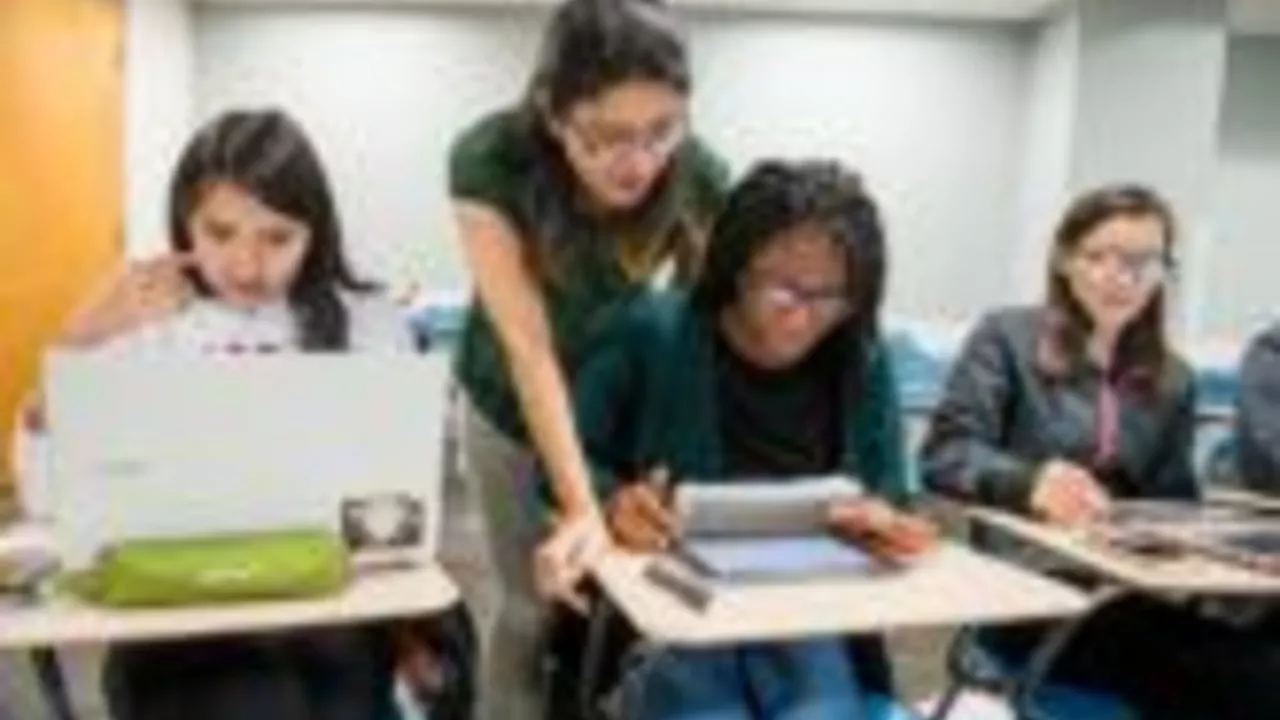- Home //
- Single
Can technology ever take place of teachers?

The Evolution of Education
Education has been an ever-evolving field since time immemorial. With the advancement of technology, traditional teaching methods have been augmented or even replaced by various technological tools. These changes have been quite significant, especially in the past decade, with the advent of digital classrooms, online courses, and even AI-driven teaching aids. However, the question that often arises is whether technology could ever fully take the place of teachers.
Technological Advancements in Education
There are numerous technological advancements that have changed the face of education. Interactive whiteboards, online classrooms, and learning management systems are just a few examples. These technologies have made it easier for students to learn at their own pace, access a wealth of information at their fingertips, and interact with fellow students and teachers from around the world. They have certainly brought a new dimension to education.
The Role of Teachers in a Technological Age
Despite these advancements, the role of teachers remains as important as ever. Teachers are not just dispensers of knowledge; they are mentors, guides, and counselors. They inspire students, ignite their imagination, and instill a love for learning. They help students understand complex concepts and encourage critical thinking. In short, they play an irreplaceable role in shaping young minds.
Can AI Replace Teachers?
Artificial Intelligence (AI) is one of the technological advancements that has made significant strides in education. AI can be used to adapt educational content to individual students' needs, provide instant feedback, and even automate grading. However, can AI replace the human touch, empathy, and personal connection that teachers provide? The answer is likely no.
The Limitations of Technology in Education
While technology can enhance the learning experience, it also has its limitations. Not all students have equal access to technology, creating a digital divide. Additionally, technology can sometimes malfunction, causing disruptions in learning. Moreover, technology cannot teach values, ethics, or social skills, aspects that are crucial in a well-rounded education.
The Hybrid Model: A Balance of Technology and Teachers
Given these considerations, a hybrid model seems to be the most effective way forward. This model integrates technology with traditional teaching methods, leveraging the best of both worlds. Teachers can use technology to facilitate learning and augment their teaching methods while still playing their crucial role as mentors and guides.
Preparation for Future: Teaching Digital Literacy
In today's digital age, teaching digital literacy is as important as teaching reading, writing, and arithmetic. Teachers play a crucial role in this regard, helping students navigate the digital world safely and responsibly. They educate students about online etiquette, privacy, and security, preparing them for the digital future.
The Future of Education: Human and Machine Collaboration
As technology continues to evolve, the future of education lies in the collaboration between humans and machines. Teachers will continue to play a vital role, using technology to enhance their teaching methods and better cater to their students' needs. At the same time, technology will continue to provide innovative tools that make education more accessible and engaging.
Conclusion: Teachers and Technology - A Symbiotic Relationship
In conclusion, while technology can greatly enhance the educational experience, it cannot replace the unique and irreplaceable role that teachers play. Therefore, it's not a question of technology versus teachers. Rather, it's about how teachers can effectively use technology to enhance their teaching methods and provide a richer, more engaging learning experience for their students. In the grand scheme of things, teachers and technology share a symbiotic relationship, each enhancing the other's effectiveness in shaping the future of education.
- Jul 27, 2023
- Alden Whitlock
- 0 Comments
- View posts
- permalink
Write a comment